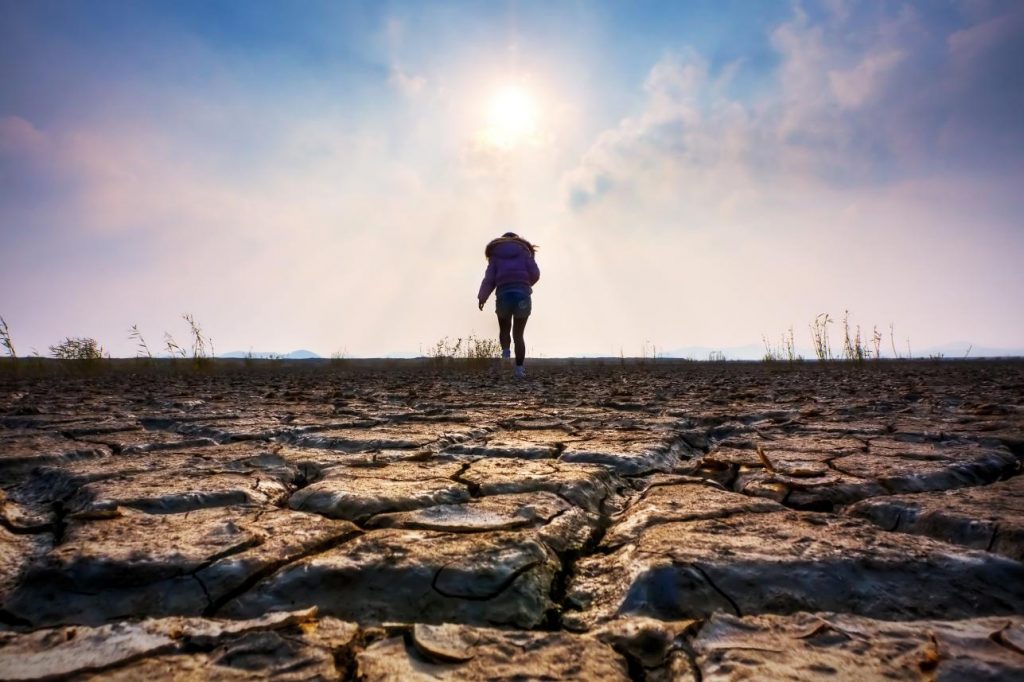
Why is it so difficult for us to talk about the climate change?
By Sofija Ninkovic
The heatwave in February sent its message. It is official; even the climate change deniers are ever more doubtful. We can finally feel the rising temperatures on our skin, and the issue transgresses the boundaries of class, skin colour, gender or nationality.
Why is it so difficult for us to take action against climate change then? If everybody knows it, and no amount of money can provide a safety net, how come is it possible that arguably very little action has been taken? The IPCC report exposed the extent of the damage the global industry has already had on our climate. We now know that we have about 12 years to stop or limit the detrimental effects of climate change, which is arguably not enough time to make the necessary radical changes at the current speed of progress.
Yet what is interesting is that there has not been much talk about radical changes in response to the reports. Governments and corporations of some of the largest polluters have not expressed their reaction to the distressing state of our climate. What is more, they are actually on their way to an overshoot of emissions far higher than what was set as a target at the Paris Accord signed in 2016. The agreement is also set to start in 2020 – which seems ludicrous given that we have about 12 years to change the fundamentals of how our system works in order to sustain humanity.
The lack of action is not only worrisome, but alarming. Industrial revolution is a social phenomenon. In the 18th century, we came up with new ways to produce useful things for us humans, faster and more efficient. It was primarily a scientific breakthrough, but it was the society that allocated these inventions and decided the ways we were going to deal with them. That is why the society is also responsible for pushing for change in the way it distributes the resources we currently have. There is an urgent need for action from the governments, corporations and societies around the globe, mostly from the largest polluters in the world, which is unfortunately not happening, and the responses that we did get are simply not enough. This is mirrored in the lack of action from sociologists around the world. Grundmann and Stehr note that the overly politicised nature of the issue of climate change and the call for interdisciplinarity are one of the major reasons we have noticed passiveness from sociologists. This seems unsatisfactory, given the necessity of good sociological study of the effects of climate change on society right now (2010). Regardless of the possible impediments and complications in this area of sociology, some action is required, given what it can achieve in terms of public policy and public opinion.
But do we really need sociologists to study the causes or effects of climate change? We have plenty of evidence that the end of humanity just might come if we do not bring about change. Why would we need an academic to acknowledge and tell us that something is clearly wrong with the way society is working?
The answer is clearly, yes, we do. Although we have a vague diagnosis of what is wrong with society today, we definitely do not have a prescription. We know climate change is happening and is real, yet the regular folk does not have an idea of how to fix it. The IPCC may be experts on what effects climate change has had so far and have some implications for the policy-makers. As we have concluded that some radical change is definitely necessary, however, a specialist sociological perspective is lacking to explain to us how this might come about, or the possible implications of profound change in the system we momentarily live in. This means that a new sociological study can open our eyes to not only what this change might look like, but also what could be the possible effects of this, how do the roles of race, gender and class come into play here and other contingent issues.
After thinking about the lack of action in the discipline, it suddenly stops being so mysterious why there has been no wide-reaching change in the sphere of politics when it comes to climate change. There simply aren’t enough ideas of how to go about this issue, and if we do anything, what effects could it possibly have, who is responsible and who should bear the consequences.
Bibliography
- Grundmann, R. and Stehr, N. (2010) ‘Climate Change: What Role for Sociology?: A Response to Constance Lever-Tracy’, Current Sociology, 58(6), pp. 897–910

0 Comments